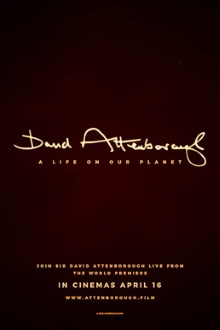It might be tempting to dismiss this as just the latest of the innumerable nature documentaries David Attenborough has narrated, but it would be a mistake. He means it when he says that this is his witness statement and so this is his personal observation of how much the world has changed since he was a boy. More significantly, you can say that this is where he takes the gloves off and lays into the real causes of the climate disaster and what needs to be done to turn things around.
Using Pripyat to serve as an object lesson on how human can devastate the environment and render a place uninhabitable, Attenborough takes viewers on a retrospective of his career as a maker of nature documentary films. As he notes, the beginning of his career roughly coincides with the advent of global air travel, allowing him to explore the farthest reaches of the planet. Yet he has also learned that vast as it seems the wilderness is not infinite in scope and that as the decades pass the animals he encountered in his youth get harder and harder to find. As the human population increases and more trees are cut down to make space for humanity, so there is less space left for the wilderness and the non-human life that live in it. This results in an ecological imbalance and the climate disaster that follows eventually leads the environment to become uninhabitable to humans ourselves. As usual, he tries to end on a positive note using Pripyat to point out that once humans take themselves out of the picture, the environment can in time restore itself so it is matter of whether or not humans have the will to restrain our own growth.
Most of the nature shots in this film consist of reused footage from Attenborough’s other documentaries and the tone here is markedly different, so this definitely does not feel like the latest of a long running series. Attenborough is much more personal and frank here, and as he covers the decades that his career has spanned, a count is kept of how much damage has been done to the natural world since his career began. The most prominent statistic is the inexorable rise of the human population with the inescapable conclusion that the more humans there are, the more land and the more resources we will need to use to sustain ourselves. I believe that this marks the first time that he makes the case that the growth of the human population itself as the fundamental problem that must be addressed if the Earth is to be saved. He even cites the declining population of Japan as a laudatory example of what can and should be done. He advocates other changes too of course such as a shift towards renewable energy and significant reductions in the human consumption of meat but the point remains. So long as the human population keeps increasing, any efficiencies and savings we can eke out in terms of resource usage is unsustainable. He doesn’t outright state what the ideal global population total that we should aim for is, but I get the impression that he prefers fewer people that what we already have now.
Needless to say this is provocative stance that will ruffle plenty of feathers. No government in the world treats a declining population as anything other than a major problem that requires addressing and every religion in the world treats procreation as a fundamental duty. It actually is kind of surprising that this film didn’t seem to have sparked off more of a controversy. It was probably because most people though this is just the latest of Attenborough’s usual nature shows. Of course he wants to go about it in a kindly manner, arguing for example that making sure girls get better education is key to a declining birth rate, but there’s no getting around the fact that he thinks there needs to be less humans on the planet. I’d said as much before that this is really what environmentalists want in the end and it’s dishonest of them not to outright say so, so kudos to Attenborough for finally coming out to say it.
For this alone, I think this is an important documentary that everyone should watch. But I also note that Attenborough is hesitant about openly advocating for some useful policies that might still be beyond the pale. For example, he cites the highly efficient, high technology farms of the Netherlands as a good example of what to aspire towards, but he might also have mentioned cultured meat as a way to to once and for all do away with having to rear animals for their meat. I think he is also a bit too careless about what real world policies to restrict population growth might entail. There is a lot of nastiness in there about eugenics and the implications of government promoted birth control programs that he just skips over. Still the door has been opened and I look forward to more interesting debates to come.
